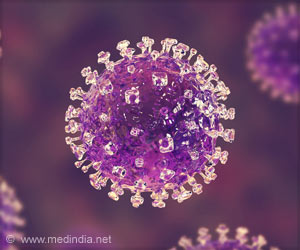Nipah virus infection is a zoonotic disease, meaning that it is spread between animals and people. Fruit bats are the natural host for the virus. The first known Nipah outbreak occurred in 1998 in Malaysia and Singapore and resulted in 265 human cases and 105 deaths, and caused significant economic damage to the swine industry there.
Since 1999, outbreaks have occurred annually in Asia, primarily in Bangladesh and India. The virus can cause mild-to-severe disease rapidly progressing from respiratory infection symptoms to encephalitis (brain swelling) leading to coma or death. An estimated 40 to 75 percent of people infected with Nipah virus die. Although most cases are transmitted via animals, person-to-person transmission can occur. Currently, there is no licensed vaccine or treatment for Nipah virus infection.
Nipah Vaccine Trial
“Nipah virus poses a considerable pandemic threat because it mutates relatively easily, causes disease in a wide range of mammals, can transmit from person-to-person, and kills a large percentage of the people it infects,” said NIAID Director Anthony S. Fauci, M.D. “The need for a preventive Nipah virus vaccine is significant.”
Advertisement
The experimental mRNA-1215 Nipah virus vaccine will be tested in a dose-escalation clinical trial to evaluate its safety, tolerability and ability to generate an immune response in 40 healthy adults ages 18 to 60 years. Specifically, 4 groups of 10 participants each will receive two doses of the investigational vaccine via injection in the shoulder muscle four or 12 weeks apart.
Group 1 (10 participants) will receive two 25-microgram (mcg) injections; group 2 will receive two 50-mcg injections; and group 3 will receive two 100-mcg injections, each four weeks apart. The vaccine dose for the fourth group of participants will be determined based on an interim analysis of the results from the three previous groups.
The fourth group will receive two injections 12 weeks apart. Study participants will be evaluated through clinical observation and blood collection at specified times throughout the study and will be followed by clinical study staff through 52 weeks following their final vaccination.
Source: Eurekalert



